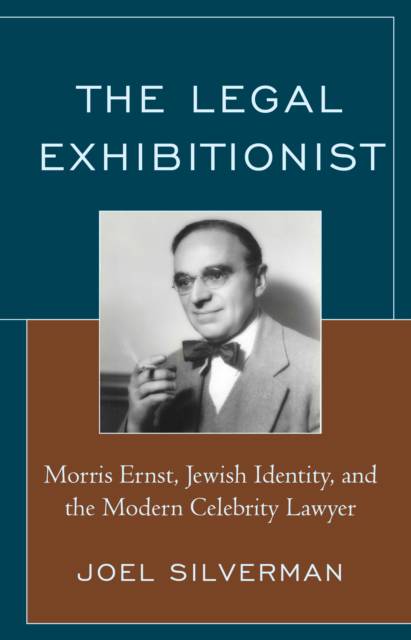
- Afhalen na 1 uur in een winkel met voorraad
- Gratis thuislevering in België vanaf € 30
- Ruim aanbod met 7 miljoen producten
- Afhalen na 1 uur in een winkel met voorraad
- Gratis thuislevering in België vanaf € 30
- Ruim aanbod met 7 miljoen producten
Zoeken
The Legal Exhibitionist
Morris Ernst, Jewish Identity, and the Modern Celebrity Lawyer
Joel Silverman
€ 167,95
+ 335 punten
Omschrijving
Born to a Jewish immigrant shopkeeper in a small Alabama town, Morris Ernst used aggressive self-promotion and exaggeration--what he called "exhibitionism"--to transcend his insecurities and his part-time legal training to become one of America's most famous lawyers. During the first half of the twentieth century, Ernst championed free speech, sexual education, birth control, and reproductive health, and his landmark defense of James Joyce's Ulysses in 1933 cemented Ernst's reputation as the top progressive attorney of the era. To promote himself, Ernst befriended newspaper writers, authors, actors, politicians, and practically anyone whose work carried some weight in popular culture. But his hunger for respect and recognition, together with his need for excitement, led Ernst to lavish praise on J. Edgar Hoover and to publicly defend--and profit from--a Dominican dictator. In the process, Ernst undermined his own credibility and largely fell out of favor with the public. By examining key moments of his life and career, The Legal Exhibitionist: Morris Ernst, Jewish Identity, and the Modern Celebrity Lawyer describes how Ernst's exhibitionism led to his rise and fall and suggests how his strategy of exaggeration anticipated the emergence of today's celebrity lawyers.
Specificaties
Betrokkenen
- Auteur(s):
- Uitgeverij:
Inhoud
- Aantal bladzijden:
- 216
- Taal:
- Engels
- Reeks:
Eigenschappen
- Productcode (EAN):
- 9781683933359
- Verschijningsdatum:
- 27/04/2022
- Uitvoering:
- Hardcover
- Formaat:
- Genaaid
- Afmetingen:
- 152 mm x 229 mm
- Gewicht:
- 458 g

Alleen bij Standaard Boekhandel
+ 335 punten op je klantenkaart van Standaard Boekhandel
Beoordelingen
We publiceren alleen reviews die voldoen aan de voorwaarden voor reviews. Bekijk onze voorwaarden voor reviews.








